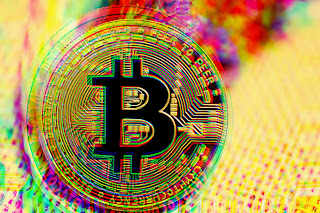A Brief History of Cryptocurrency
In the mountain man time, individuals utilized scoopmint the trade framework, in which labor and products are traded among at least two individuals. For example, somebody could trade seven apples for seven oranges. The trade framework dropped out of famous use since it made them glare imperfections:
Individuals' necessities need to harmonize — assuming you have something to exchange, another person needs to need it, and you need to need what the other individual is advertising.
There's no normal proportion of significant worth — you need to conclude the number of your things you will exchange for different things, and not all things can be partitioned. For instance, you can't isolate a live creature into more modest units.
The merchandise can't be shipped effectively, dissimilar to our cutting edge cash, which fits in a wallet or is put away on a cell phone.
After individuals understood the trade framework didn't function admirably, the money went through a couple of emphasess: In 110 B.C., an authority cash was printed; in A.D. 1250, gold-plated florins were presented and utilized across Europe; and from 1600 to 1900, the paper cash acquired far and wide prominence and turned out to be utilized all over the planet. This is the means by which current money as far as we might be concerned appeared.
Present day money incorporates paper cash, coins, Mastercards, and advanced wallets — for instance, Apple Pay, Amazon Pay, Paytm, PayPal, etc. Every last bit of it is constrained by banks and states, intending that there is an incorporated administrative power that limits how paper money and Visas work.
Customary Currencies versus Cryptographic forms of money
Envision a situation in which you need to reimburse a companion who got you lunch, by sending cash online to their record. There are multiple manners by which this could turn out badly, including:
The monetary establishment could have a specialized issue, for example, its frameworks are down or the machines aren't working as expected.
Your or your companion's record might have been hacked — for instance, there could be a refusal of-administration assault or fraud.
As far as possible for your or your companion's record might have been surpassed.
There is an essential issue of disappointment: the bank.
To this end the fate of cash lies with cryptographic money. Presently envision a comparative exchange between two individuals utilizing the bitcoin application. A warning seems finding out if the individual is certain the person is prepared to move bitcoins. If indeed, handling happens: The framework confirms the client's personality, checks whether the client has the expected equilibrium to make that exchange, etc. After that is finished, the installment is moved and the cash lands in the beneficiary's record. All of this occurs right away.
Digital money, then, at that point, eliminates every one of the issues of current banking: There are no restrictions to the assets you can move, your records can't be hacked, and there is no essential issue of disappointment. As referenced above, starting around 2018 there are in excess of 1,600 cryptographic forms of money accessible; a few famous ones are Bitcoin, Litecoin, Ethereum, and Zcash. What's more, another digital money manifests each and every day. Taking into account how much development they're encountering right now, there's a decent opportunity that there are something else to come!

Comments
Post a Comment